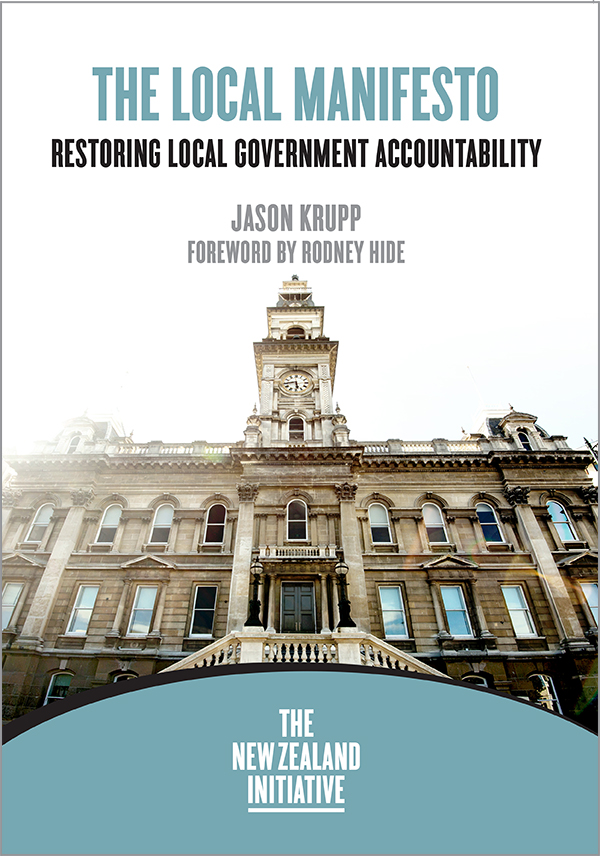Local government plays an important role in New Zealand and is often overlooked. When things like roading, water and recycling services are working well, we barely even notice them. But if councils get them wrong, it can have national consequences - like Auckland's housing affordability crisis.
That is why it is important to reform the Local Government Act (LGA) to ensure that councils operate in accountable, open and efficient manner.
What’s the problem?
The LGA, as it stands, aims to make councils answerable to their communities and central government at the same time.
In theory this should provide double oversight, but in practice it blurs the lines of accountability and transparency, locking people out of the democratic process. As a result of these legislative arrangements:
- Central government can pass regulatory tasks to local government without any funding. These costs must be borne by communities, but they have little say over the tasks that they are being asked to pay for;
- Poor lines of accountability develop between policymakers and tax or ratepayers. Councils can unfairly take the blame for centrally imposed costs, but can also blame central government for their own poor performance; and
- Communities are seldom faced with the costs of their choices, particularly where only property owners pay local taxes directly in the form of rates.
In this environment it is hardly surprising that the relationship between central government, local government, and communities is characterised by distrust and misunderstanding. Central government’s solution has been to amalgamate councils, but despite decades of pursuing this policy it has failed to deliver democratically acceptable results.
How do we fix it?
This report aims to restore accountability, transparency and community responsibility through changes to the LGA. We propose to do this by setting clear roles for each tier of government, with limits on the ability of either party to act beyond these limits, except where agreed to beforehand or in extreme circumstances.
This will require change on both sides: legislative reform at a central level, and operational reform at the local level. Both will be needed if the relationship between these two important tiers of government is to be fixed.
Top down reforms:
- We recommend fixing the double oversight problem by making local councils fully responsible for the local tasks they currently perform. If a council takes responsibility for a function, like roading or dog control, the buck stops with them. This will stop duplication, blame shifting, and unfunded mandates.
- There will be times where central government policy or intervention is needed, such as putting a nationally consistent planning framework in place. This should be recognised in the LGA. But, councils should be allowed to opt out to stop central government overstepping its mandate. A necessary check and balance on opt-outs is approval by local referendum. Councils should also be made liable if the opt out imposes costs on central government. This is needed to avoid a moral hazard.
- Some local authorities may be better placed to take on tasks currently managed by central government in their jurisdiction. Where councils are likely to achieve better outcomes, the LGA should allow councils to negotiate with central government to have these functions handed over to them, including funding.
- Property taxes present councils with weak incentives to promote economic growth in their region. This is particularly so for infrastructure investment, where costs fall due immediately but rates revenue is many years off. Financial incentives should be introduced to circumvent this problem.
If councils are to be given more responsibility, they need to show they are capable of managing it. This is needed to combat the widely held (and often mistaken) view that councils are incompetent.
Bottom up reforms:
- Local authorities need to show that they are prudent spenders of public money. To do this, councils need to improve the quality of cost- benefit analyses on long-term plans. Current assessments fall far short of what an economist would recognise as a cost-benefit analysis.
- According to the LGA, the purpose of local government is to “enable democratic decision making and action by, and on behalf of, communities”. Current consultation processes are overly technocratic and complex, which disenfranchises communities. If councils are to be allowed more autonomy, they need to show their actions are steered by local democratic preferences. Two excellent mechanisms worth considering are local referenda and citizen juries.
The policy recommendations in this report provide a practical means of making local government more accountable and transparent to communities. The aim is to make New Zealand better off. Drawing clear lines of responsibility will go a long way to fixing the relationship between local and central government. In effect it is a framework for both parties to meet each other halfway.



